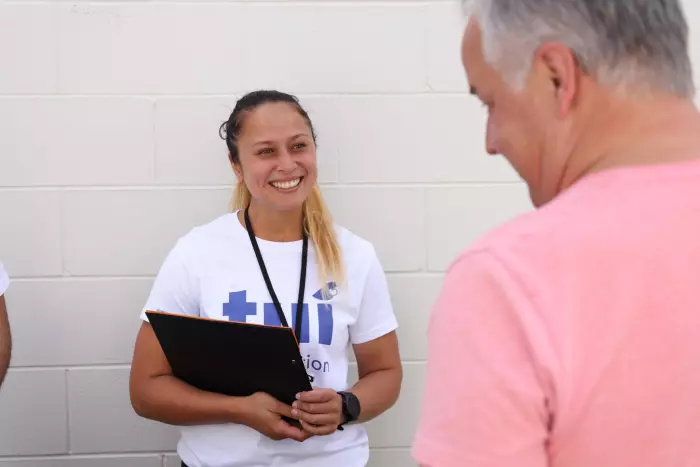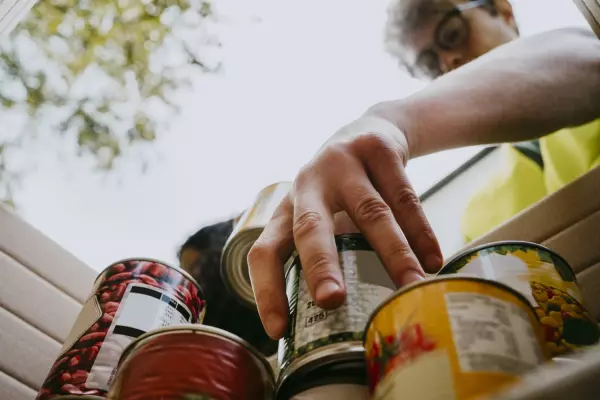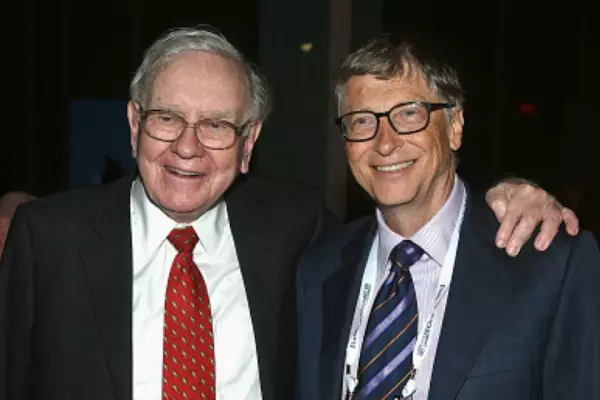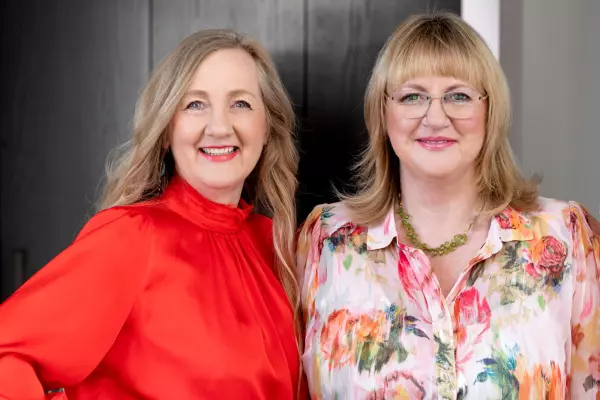In a previous article, we examined some of the costs a charity faces when fundraising. But is it possible to do more for free? To what extent can a charity be boosted by goodwill, volunteering and pro bono work?
One of the cheapest ways to entice donations is to appeal directly to the public – saving on professional fundraisers.
Individuals and charities can ask for donations on sites like Givealittle. A well-written story and a powerful image can be enough to raise significant sums of cash.
In fact, unlike face-to-face fundraising (which declined last year due to covid), 2021 had the highest level of donations to date on Givealittle with $34 million raised. Since 2008, the site has hosted $211m in donations, with $2.7m raised over the past month and nearly $100,000 in one day on June 28.
The method is not entirely free. The site, owned by Andrew Barnes’s Perpetual Guardian estate planners since 2019, charges a 5% service fee on all donations and a 14.2% fee for TaxGift donations. But that’s certainly less than the 25% target that professional fundraisers aim for.
Of course, the most successful causes are not directly comparable to the sustained campaigns that established charities conduct. They involve deeply individual and unique causes and are often reacting to very recent, typically tragic events. But it is that sense of urgency and direct connection to the recipient that can make these campaigns so powerful.
| Top 10 causes on Givealittle, 2017-2022 | |||
|---|---|---|---|
Cause |
| Total raised | Duration of campaign |
Victim Support Official Page: Christchurch Shooting Victims' Fund | Fund for victims of Christchurch terror attack. | $10,574,322 | 4 months |
Jemima's Wish | For paediatric brain cancer research. | $634,833 | 20 days |
Hope for Hollie | Support for Hollie Beattie's Neuroblastoma treatment and her family. Hollie was a young girl whose 4-year battle with cancer ended in May this year when she passed away. | $560,178 | 3 years |
Steve Askin Family | Support for wife and two children of SAS veteran and firefighter who died in a helicopter crash. | $411,831 | 12 months |
Gumboot Friday - I Am Hope | Mental health counselling for children | $370,850 | 12 weeks |
Help Orana Wildlife Park Survive Covid-19 | Zoo funding. | $368,464 | 6 months |
Help Rosie and her family during this tragic time | Support for Rosie Dowling whose husband Gavin died in an accident whilst her youngest child of three was also in the hospital during the covid pandemic. | $282,657 | 3 months |
Sean Wainui's Whānau support | Support for Whānau (wife Paige and two children) of a young rugby player who died in a car accident. | $280,520 | 4 weeks |
Support the Hill – Te Ahu Pātiki Maunga | Fund land purchase to create conservation park. | $274,735 | 8 months |
Let's Not Forget (RSA Poppy Appeal) | Funds for service people. | $248,506 | 6 weeks |
But that is not to say established charities don’t also use Givealittle. Unicef, Relief Aid and Royal New Zealand Returned and Services' Association have all used the platform to encourage donations.
But, naturally, this would just be one strand of their professionally coordinated fundraising strategy.
Another suggested method of no-cost fundraising is the concept of corporate volunteering.
Volunteering days
As part of the trend for Corporate Social Responsibility, many companies are offering a handful of volunteering days as part of their contract.
It’s presented as a way to give back to both employees and wider society, with the thinking that it is those with professional skillsets, like marketing, accounting or even legal expertise, who may be able to benefit charities the most.
But Sarah Woodhams, a specialist recruiter for the charitable sector, insisted effective fundraising campaigns require consistency.
“There's quite a lot of fudging or confusion at times over the difference between marketing and fundraising. And the reality is there definitely is an overlap. And it's undeniable. Fundraising is, you know, an art and a science of its own. And what it does require is consistency.
“[To] plug someone in to give the three or four days' voluntary time a year … the reality is, that just doesn't work. Because you don't have the consistency then of the constant message, and it's got to be woven through everything you do, you've got to look after and nurture and steward your donors, you can't just pick up and drop off.”
Her concern was echoed by Heather Newell, director of Foresee Communications, who has worked in the charity sector for 30 years.
“I’m wary of pro bono work. They can walk away at any time. They might make promises they can’t keep. There is an element of urgency to fundraising. You can buy a professional to hit the target but pro bono can walk away at any time,” she warned.
HelpTank
Though the concept of a corporate employee contributing a couple of days a year may seem lacklustre to some, the notion of ‘skilled volunteering’, where experts complete a specialised project for free, is what underpins the website HelpTank.
Offering the chance to “be part of the helping revolution”, it pairs skilled professionals with community organisations.
It has over 1,600 current volunteers and 691 not-for-profit organisations registered. Charities can post the project they’re fulfilling and users can browse this and apply for posts that interest them. Charities are able to assess their suitability and accept or reject them.
Since its inception in 2016, it has matched individuals with 793 charitable projects, with 113 still currently open.
But has this army of specialist volunteers remained committed or have some, as warned, backed out halfway through the project?
Tash Crosby works for two charities, Talk Peach and Wāhine Connect, that have used HelpTank to find videographers, SEO and website experts among other roles.
“We have someone building us a new CRM system. We have been very lucky with all volunteers, the system currently getting built [for Wāhine Connect] would have cost us upwards of $30,000, and we are very grateful for the support.
“The videographer and the volunteers helping with our website have all been super professional and have taken on the jobs as though we were a paying client, even travelling to us to get things done,” she told BusinessDesk.
Healing Innovation Hub, which promotes holistic mental health, has posted several roles on HelpTank. CEO trustee Adele Hauwai reported that its accountant, HR and administrator projects are regularly filled. A recent posting was seeking a fundraiser that could contribute 120 to 500 hours over three to six months. Although she admitted that some individuals drop out during the project. “We've had to accept it's all part and parcel of free volunteer work,” she said.
Good Bitches Baking
The team at Good Bitches Baking, who bake for those going through a tough time, has found HelpTank “to be a really useful resource”, according to spokesperson Hannah Molloy.
“We’ve sought and found people to do all kinds of things from one-off tasks such as creating formulas in a spreadsheet to bigger projects such as logistics management for a national team event. We’ve also found people for our social media team and to support the implementation of a very complex and custom-built roster management system and various things in between,” she explained.
But she highlighted how volunteering is not a one-way street where the charity is the sole beneficiary.
“Part of the responsibility that comes with that is training and upskilling people so their volunteer experience is as good for them as it is for us. As with any volunteer activity, some people stay for the long haul and others only want to participate for a short period,” she said.
Responses suggest that relying on pro bono work can be less dependable but occasionally the reward is to save the charity a significant sum of money. But it’s not necessarily a reliable shortcut, especially if you are looking for volunteers to help with fundraising.
“Honestly, I almost get a little bit offended when people talk about shortcuts, because I think that undermines the professionalism in skill and the sheer determination that fundraisers have to succeed for their charities. You know, if anything was easy, would it be worth doing?” asked recruiter Woodhams.
When asked whether she ever feels tempted to offer pro bono work to causes close to her heart, Newell, who sells her fundraising expertise as a consultant, said she takes into account if her customer is a young startup and if she loves the cause.
She said: “There’s always room for philanthropy, even amongst consultants.
“My business model is to share my learning. I want to share that with as many charities as possible but the only way that works is if they pay.
“Why wouldn’t I charge them?”















